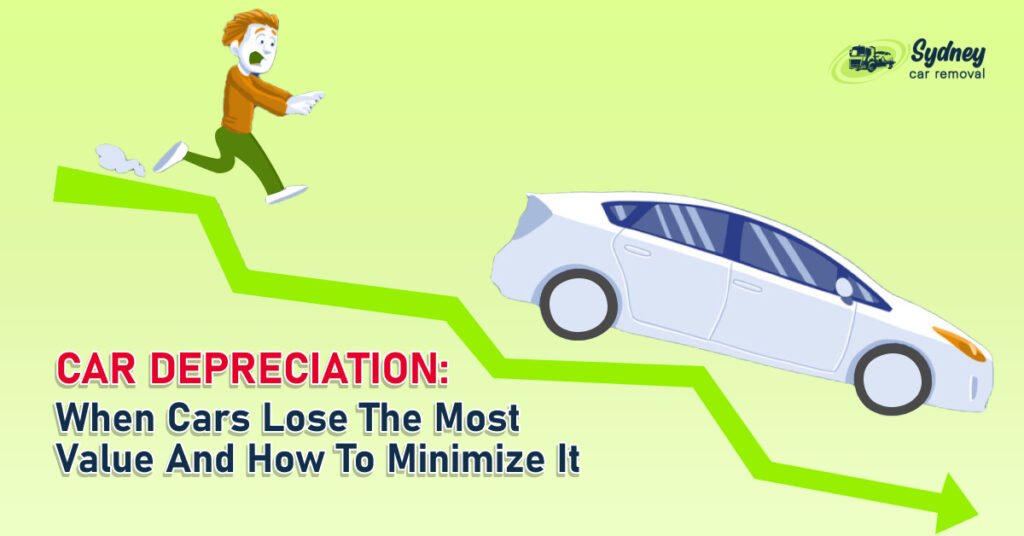Depreciation is one of the most important financial factors when purchasing a car. The rate at which a car’s value diminishes over time is called depreciation. This implies that your new car loses value when you drive it off the lot. Depreciation is a normal aspect of owning a car, but it can be expensive if you still determine when it will happen to your car. In this article, we’ll look more closely at when cars lose the most value and what you can do to lessen the damage.
How To Calculate Car Depreciation:
Before discussing when cars depreciate more, it’s critical to comprehend the causes of car depreciation. Over time, cars lose value for several reasons, including:
Damage And Wear:
Your car experiences wear and tear while you drive it, which may impact how well it runs. This deterioration over time can lower the car’s value.
Market Demand:
Cars are subject to variations in market demand, just like any other product. A sudden change in consumer preferences toward particular car types may impact the value of other models.
Newer models:
The release of newer car models may decrease the value of previous cars. Older vehicles with better amenities may lose attraction and value as new vehicles with better amenities enter the market.
Automotive Depreciation and Mileage:
One of the most important variables in automotive depreciation is mileage. A car will often depreciate more quickly the more miles it has. This is because driving your car causes it to go through wear and tear, which affects its overall health and functionality. A few mileage standards for automotive depreciation are listed below:
Between 10,000 and 15,000 kilometers:
The value of a car normally drops by 15% to 20% in the first year of ownership.
30,000 to 40,000 miles:
Cars may have lost up to 50% of their value by the end of the third year of ownership.
60,000–70,000 miles:
Cars may have lost up to 75% of their value by the end of the sixth year of ownership.
The actual rate of depreciation might differ based on the type and model of the car, as well as other aspects like maintenance and repair history. Therefore, it’s important to remember that these standards are not absolute.
Other elements that contribute to a car’s depreciation
There are other aspects to consider, even though mileage is one of the most important criteria that affects how much an automobile depreciates. These consist of:
The car’s age:
Cars generally lose value faster. This is so because newer cars typically have more sophisticated features and technologies that appeal to purchasers more.
History of maintenance and repairs:
Vehicles with a solid repair history and a history of regular maintenance are often worth more than those that have not.
Reputation of the brand and perceived dependability:
Cars from reputable brands are typically worth more than those from less reputable brands since they are known for their dependability and longevity.
How to Reduce Vehicle Depreciation
Although you can’t prevent it, several ways exist to lessen the effects of automotive depreciation. Here are some pointers:
Buy a dependable vehicle:
Do your study to select a car model renowned for its dependability and lifespan if you’re in the market for a new vehicle. These automobiles typically maintain their worth better over time.
Maintain up with maintenance:
Performing routine maintenance can maintain your car in good shape and help avoid costly repair concerns. This, in turn, can support the preservation of its worth over time.
Avoid packing your car too full:
Towing too much weight or overloading your automobile with hefty baggage will strain its engine and other systems, which can hasten depreciation.
Careful Driving:
Drive carefully since reckless driving can accelerate the wear and tear on your car and increase its depreciation. You can keep your car in good shape by driving cautiously and avoiding abrupt stops and starts.
Sell your automobile properly:
Timing is crucial if you’re considering selling your car. You can sell your automobile for more money if you do so before it reaches a significant mileage milestone. A reasonable offer for your car is now available on our car removal Sydney service!
Best Practices For Maximizing Value When Selling A Car:
You can do various things to increase the value of your car when it comes to selling it. Look at the following excellent practices:
Maintain maintenance and repair logs:
Potential purchasers can see that your car has been well-maintained and cared for if you keep track of all the repairs made.
Detail and clean the vehicle:
Potential purchasers are more attracted to a clean, well-maintained vehicle than a dirty, neglected one. Before putting your automobile up for sale, think about having it professionally detailed.
Consider selling to Sydney car removal:
Private car sales occasionally increase prices but can be time-consuming and frustrating. You may obtain cash for your automobile quickly and easily by selling it to CashForCars.com.
Conclusion
All car owners will eventually have to deal with the realities of car depreciation. But if you adhere to the advice provided in our article, you may minimize the impacts of depreciation and increase the long-term worth of your car. And if you want to sell your automobile quickly and without any hassles, car removal Sydney is the ideal option.
Sydney car removal can provide a fair price for your car and assist you in avoiding the time-consuming and frequently unpleasant process of selling your car privately with a straightforward online approach and free vehicle pickup. Visit our page immediately to sell your car for cash and stop letting automotive depreciation bring you down.


